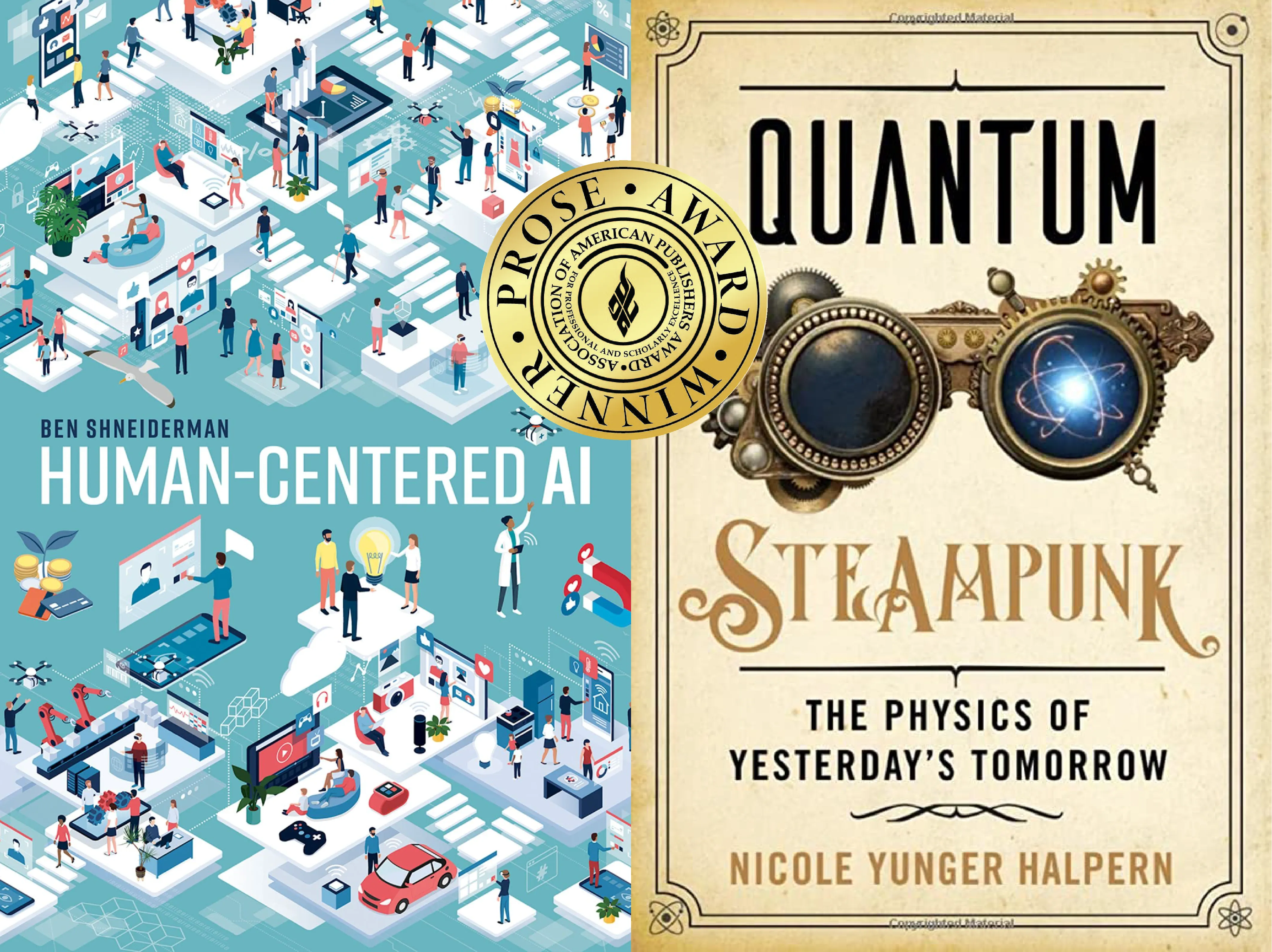
Two books authored by scientists affiliated with the University of Maryland Institute for Advanced Computer Studies (UMIACS) were each recognized by the Association of American Publishers with a prestigious Professional and Scholarly Excellence (PROSE) award.
The awards, now in their 47th year, acknowledge books, journals, and digital products of extraordinary merit that make a significant contribution to a field of study.
Theoretical physicist Nicole Yunger Halpern’s book, Quantum Steampunk: The Physics of Yesterday’s Tomorrow, took the Popular Science and Mathematics category; and Distinguished University Professor emeritus Ben Shneiderman’s book, Human-Centered AI, won the Computing and Information Sciences category.
The publisher and author of each book—Johns Hopkins University Press (Yunger Halpern) and Oxford University Press (Schneiderman)—are now eligible for the R.R Hawkins Award, which recognizes an outstanding scholarly work in all disciplines in the arts and sciences. That award is expected to be announced in March 2023.
Yunger Halpern’s book puts a new spin on the concept of quantum thermodynamics, linking the field to the spirit of steampunk.
“Quantum steampunk is this lovely blend of the old and the futuristic,” explains Yunger Halpern, who is a fellow in the Joint Center for Quantum Information and Computer Science and an adjunct assistant professor in UMIACS.
Steampunk is generally thought of as a subgenre of science fiction in Victorian settings—think smoky early factories, men in top hats and women in petticoats—who are using futuristic technologies like time machines, dirigibles and automatons. Thermodynamics was developed during the Victorian era so people could, for instance, understand the engines running the factories.
Yunger Halpern’s theoretical work blends the two eras, examining older questions from the field of thermodynamics—like heat transfer or work output—through the 21st-century lens of quantum information. She created a cast of fictional characters to illustrate scientific points in a story that runs throughout her book.
Shneiderman’s book has less of a whimsical tone, instead addressing what some scientists see as a controversial future for artificial intelligence (AI)—one that evokes imagery of computers harming humans, whether through a Matrix-like takeover, or entrusting unfit algorithms with sensitive decisions.
A pioneer in the field of human-computer interaction and founding director of the university’s Human-Computer Interaction Lab, Shneiderman proposes an alternative future where computers dramatically amplify human abilities, empower people, and ensure human control. This compelling prospect would enable people to see, think, create, and act in extraordinary ways, he says, by combining potent user experiences with the embedded AI support services that users want.
“I am pleased that the ideas in this book are getting recognition and having an impact in the field,” says Shneiderman. “The importance of following a human-centered AI approach to ensure human control while increasing the level of automation is clearer than ever.”